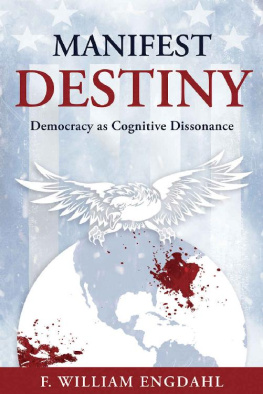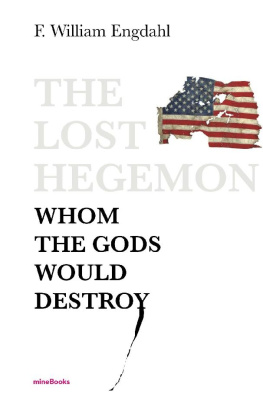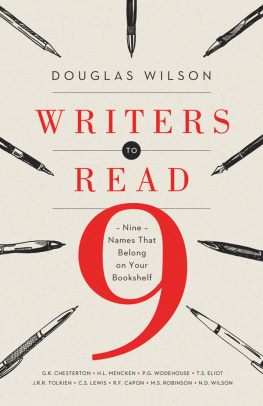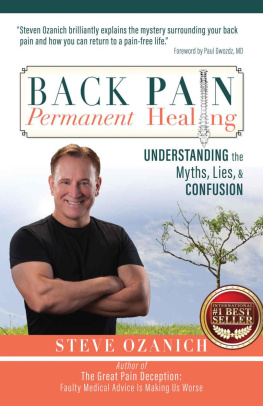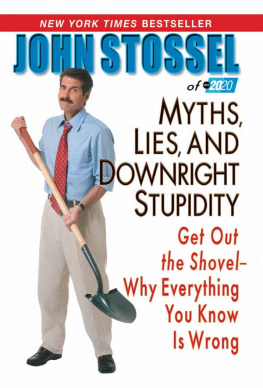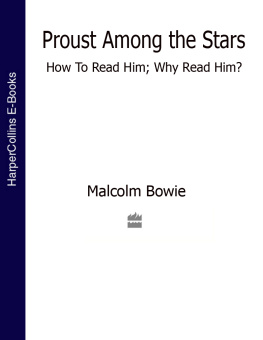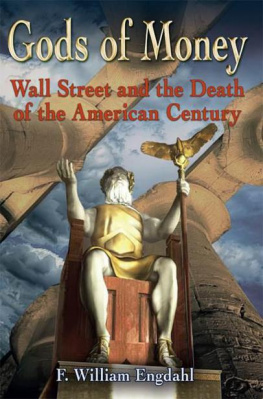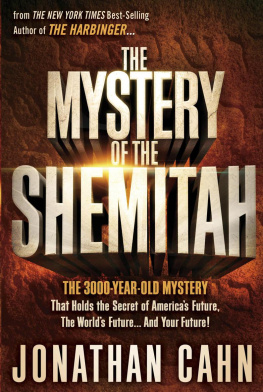F. William Engdahl - Myths, Lies and Oil Wars
Here you can read online F. William Engdahl - Myths, Lies and Oil Wars full text of the book (entire story) in english for free. Download pdf and epub, get meaning, cover and reviews about this ebook. year: 2012, publisher: Gertrud Engdahl, genre: History. Description of the work, (preface) as well as reviews are available. Best literature library LitArk.com created for fans of good reading and offers a wide selection of genres:
Romance novel
Science fiction
Adventure
Detective
Science
History
Home and family
Prose
Art
Politics
Computer
Non-fiction
Religion
Business
Children
Humor
Choose a favorite category and find really read worthwhile books. Enjoy immersion in the world of imagination, feel the emotions of the characters or learn something new for yourself, make an fascinating discovery.

- Book:Myths, Lies and Oil Wars
- Author:
- Publisher:Gertrud Engdahl
- Genre:
- Year:2012
- Rating:4 / 5
- Favourites:Add to favourites
- Your mark:
Myths, Lies and Oil Wars: summary, description and annotation
We offer to read an annotation, description, summary or preface (depends on what the author of the book "Myths, Lies and Oil Wars" wrote himself). If you haven't found the necessary information about the book — write in the comments, we will try to find it.
Check the Amazon Reviews. People are raving about Myths, Lies and Oil Wars!
This book is a weapon of mass awakening - Michael Ivey
...a must read - NeoFeudalSerf
...one of my favorite writers. - Thinker
Very interesting... - D. Russell
W. Engdahl must be read! - R. Lester
Everyone has to read this book. Period!!! - Peter B.
...excellent book... - Ryan
Eye opening - Sean C. Markus
...most amazing documentation... - Robert E. King
A stunning book - Norman
Very good reading. - Daydreamer
... I cannot stop reading... - Stephen
The most interesting political writer of our time. - victor kiriakus
An outstanding read. - Financial Foghorn
In the 1970s Henry Kissinger reportedly stated, If you control the oil, you control entire nations. Here is some of what you will learn about how this works in our modern world on reading Myths, Lies and Oil Wars:
+ The true origins of the pseudo-scientific Peak Oil theory and the role of Shell Oil in it going back to the 1950s
+ How a 400% rise in world oil prices was brought about by Henry Kissinger and a secretive group of very influential European and US businessmen meeting in May, 1973 in Saltsjoebaden, Sweden
+ The decisive role of the Anglo-American oil majors in creation of the Malthusian zero growth movement of the 1970s, and the true origins of the Global Warming ideology
+ How modern eugenics and the major oil companies are linked
+ The relation between Saddam Hussein and the CIA in the 1980s Iran-Iraq War
+ How the Chechyn wars in the 1990s were tied to British and US oil pipeline strategies
+ How Washington is maneuvering to control vital oil supply lines of China in the future in Africa, the Middle East and Central Asia
These are only a few of the fascinating and little-known facets of the world of oil and how it controls much of our daily lives.
The myth of oil scarcity has allowed four giant corporations along with a handful of Wall Street banks to control the worlds largest and most essential commodity, oil. The myth originated in the 1950s from a geologist at Royal Dutch Shell. It was revived in 2003 in time for the US bombing of Iraq. The reality is quite different from claims of Peak Oil. In reality the world is running into oil and not running out of oil. In Myths, Lies and Oil Wars F. William Engdahl discusses little-known details of wars and manipulations designed over the past half century or more-- wars in Africa, the Arab Spring, Iraq-- all to maintain a lock-grip control of the worlds known oilfields. The myth of scarcity has been a pillar of their power and in fact of the power-projection of the United States as sole superpower.
The book details revolutionary and shocking new scientific work developed in Cold War secrecy in the Soviet Union which proved that oil originates not from dinosaur detritus or fossilized algae as western geology mythology maintains. The Soviet scientists showed that oil and gas have deep origins at the level of the Earths mantle some 200 km below. Like volcanoes, hydrocarbons are forced upwards until they typically are trapped in reservoir rock formations. The Russian work has been the target of a concerted campaign to discredit the theory. Little wonder. Were its implications understood widely, oil and gas would be considered as virtually a renewable energy and our energy crises and wars a thing of the past. As Henry Kissinger said, If you control the oil you control entire nations. The converse is also true--If oil cannot be controlled the controlling powers lose their control over other nations and the wars that go with it. This is an entirely different account of the worlds most important and most political commodity--oil.
F. William Engdahl: author's other books
Who wrote Myths, Lies and Oil Wars? Find out the surname, the name of the author of the book and a list of all author's works by series.

